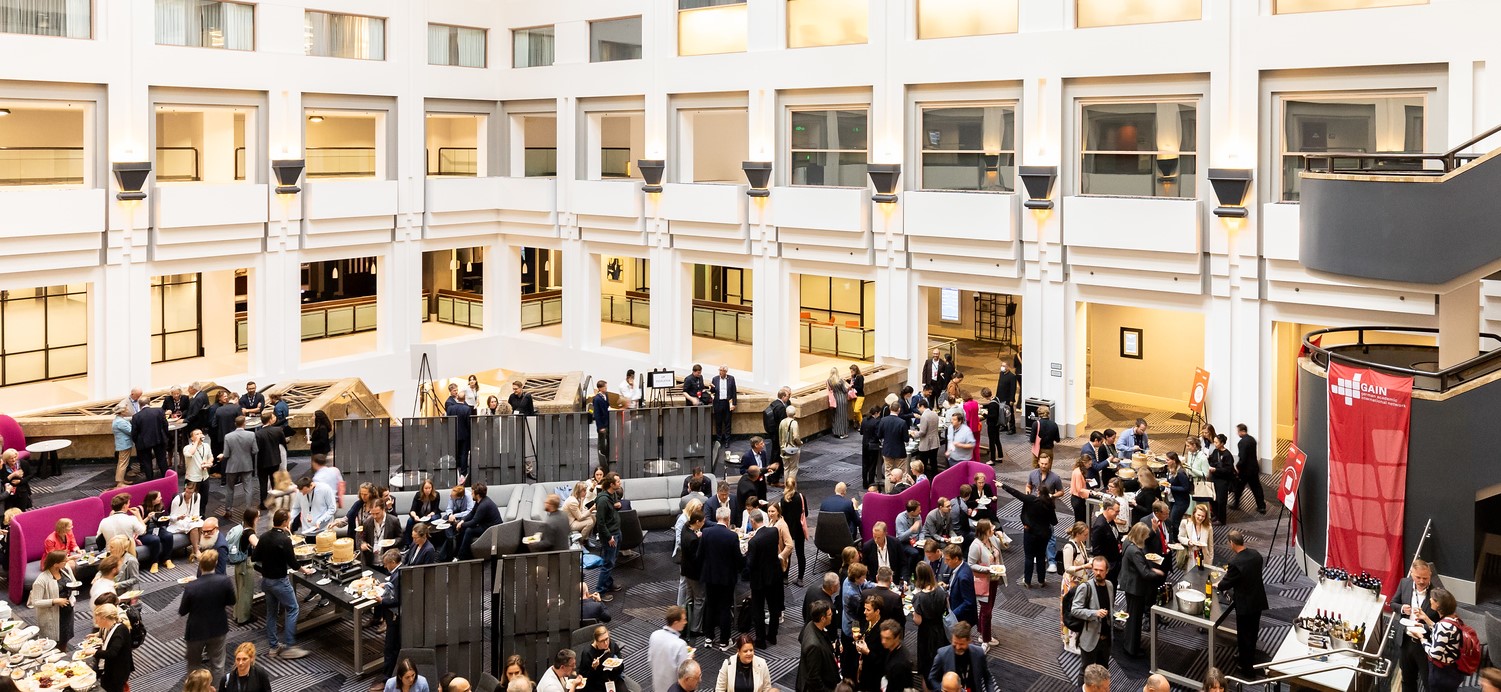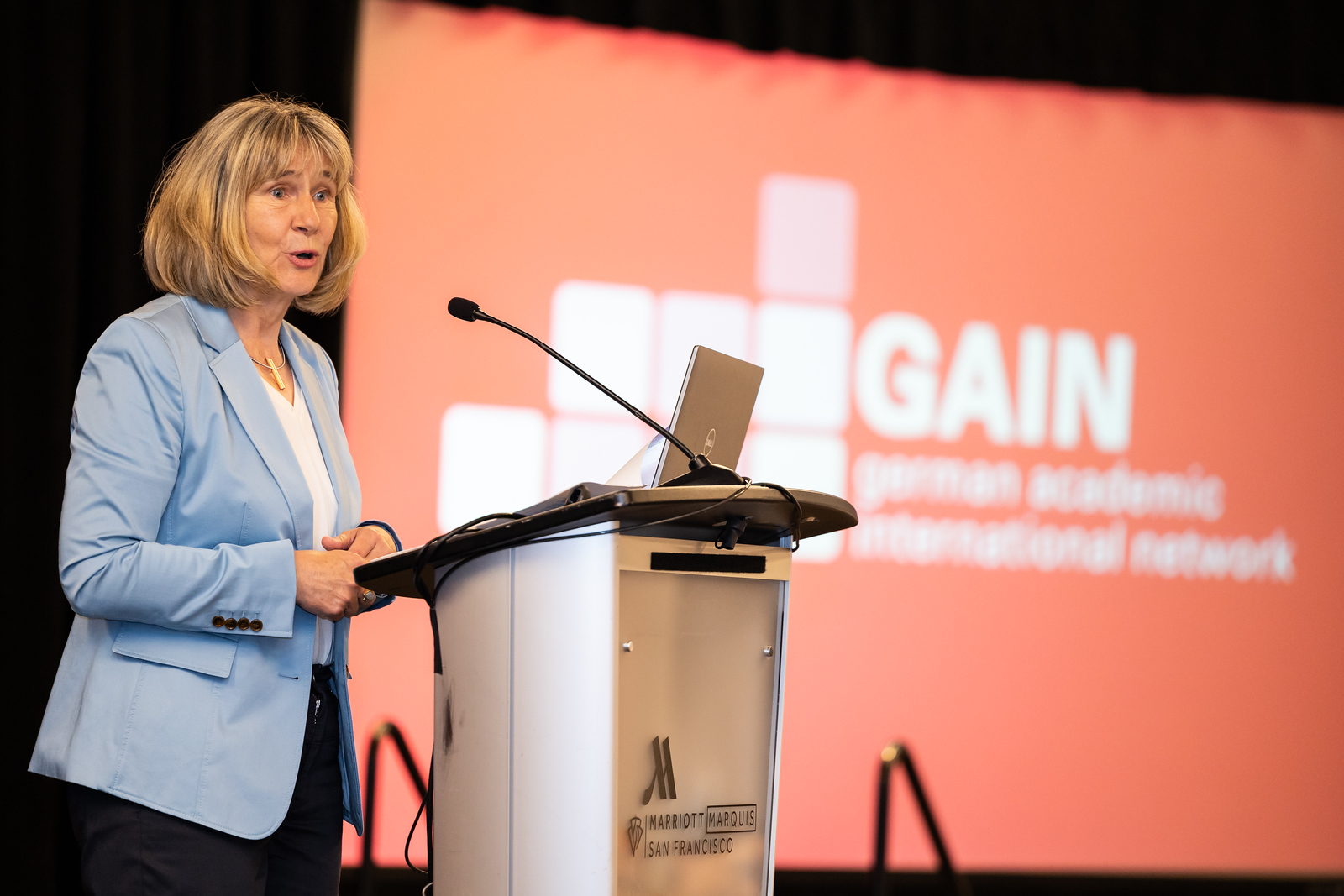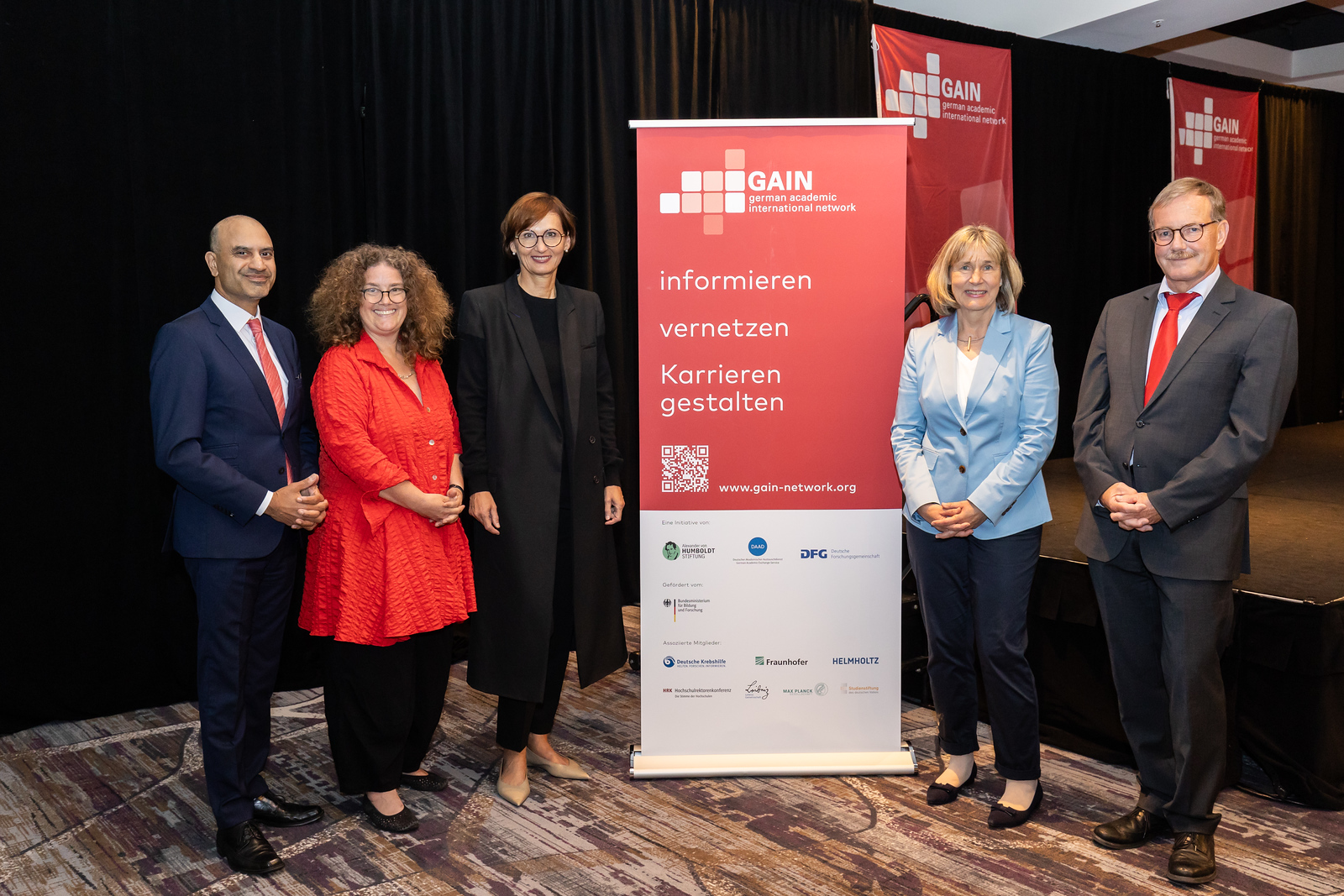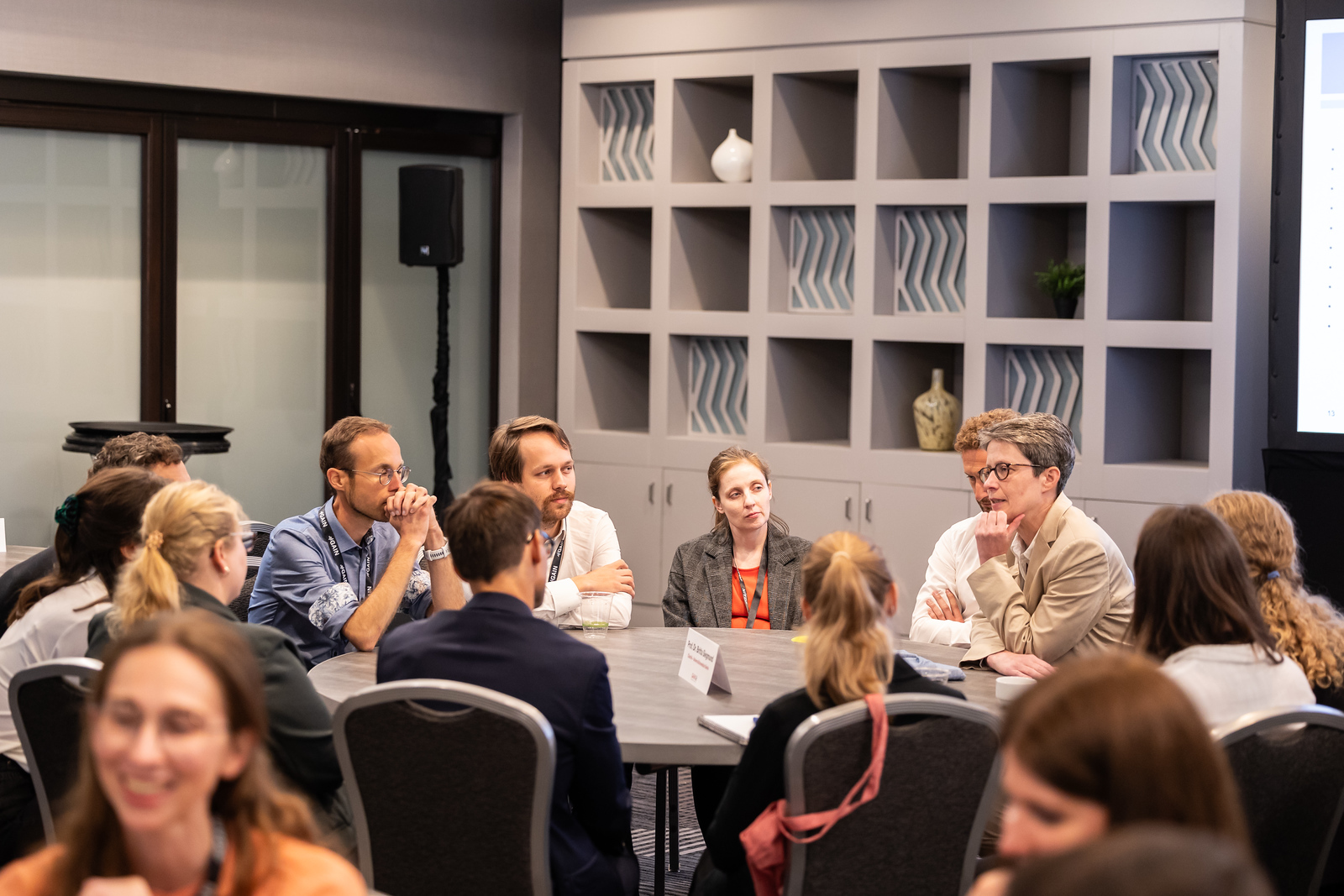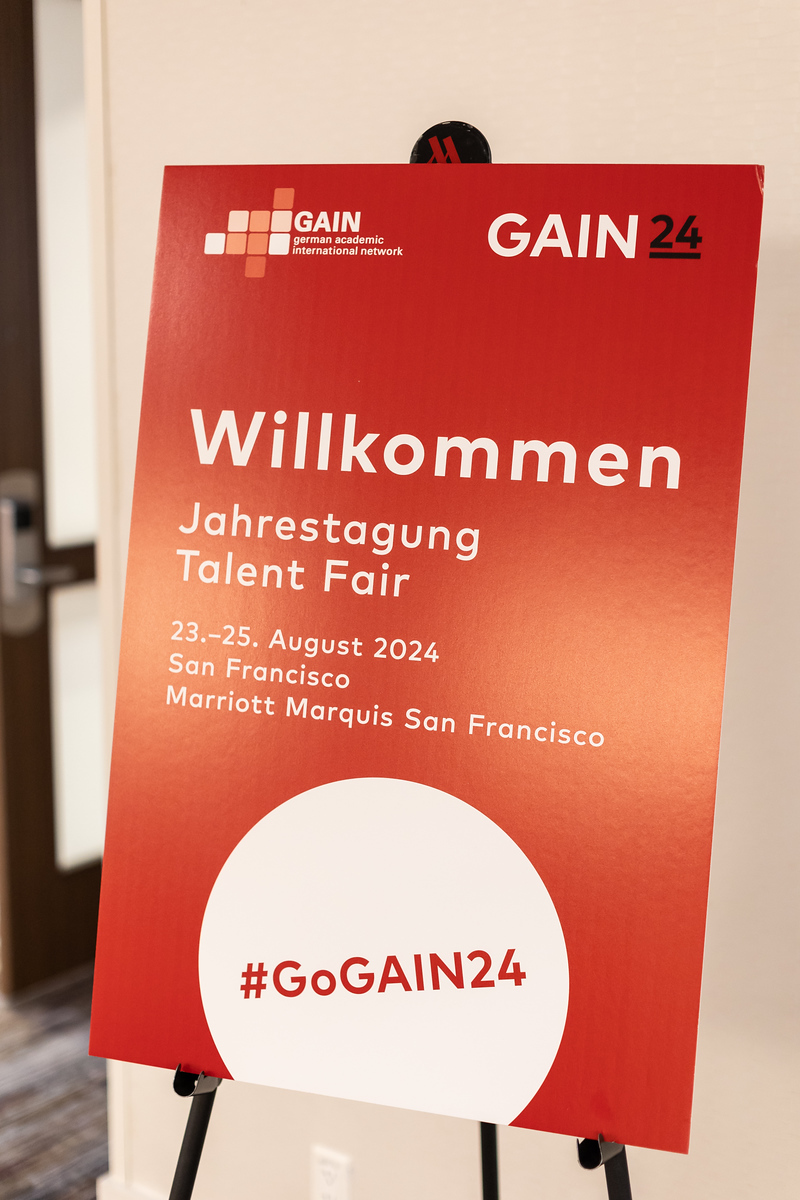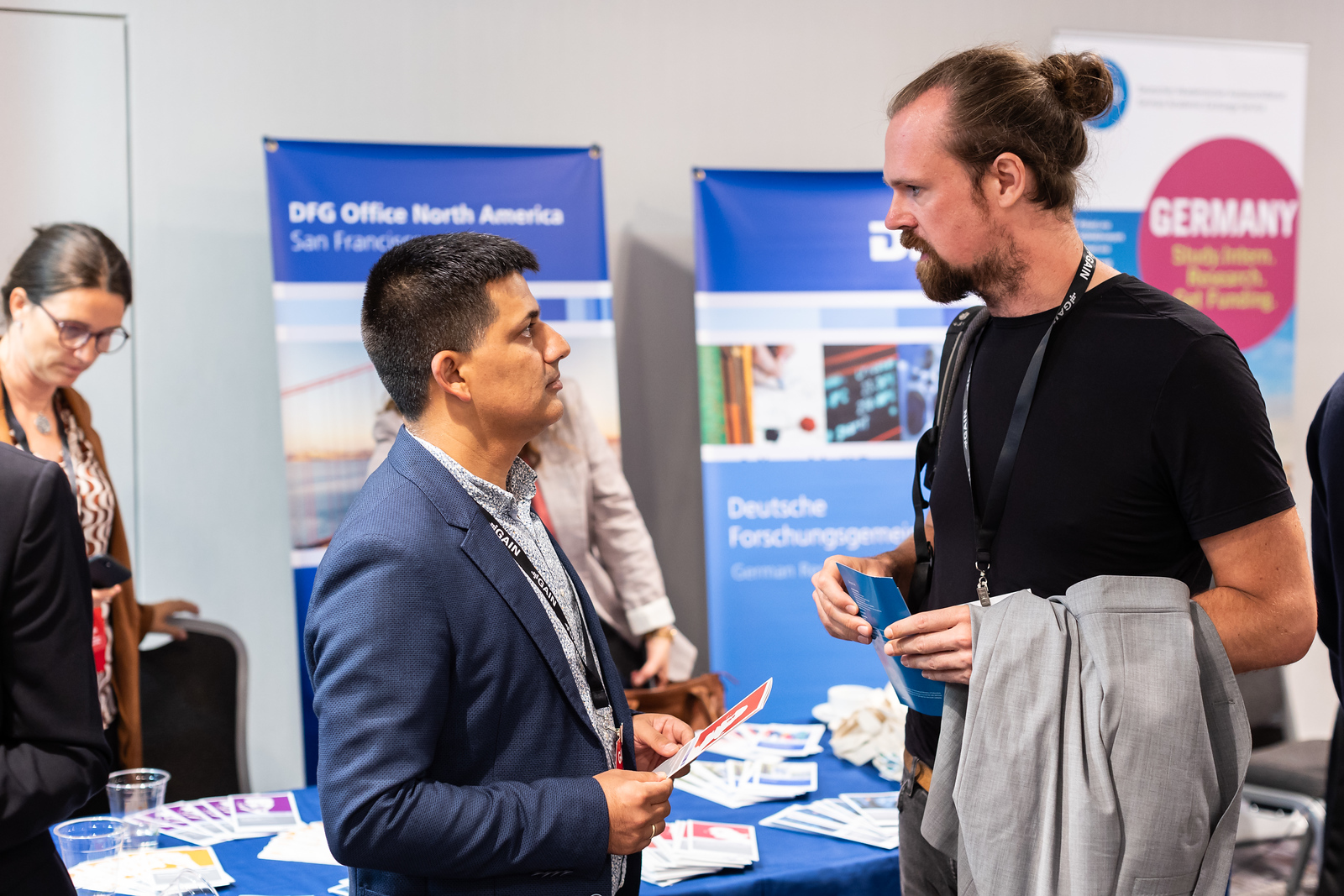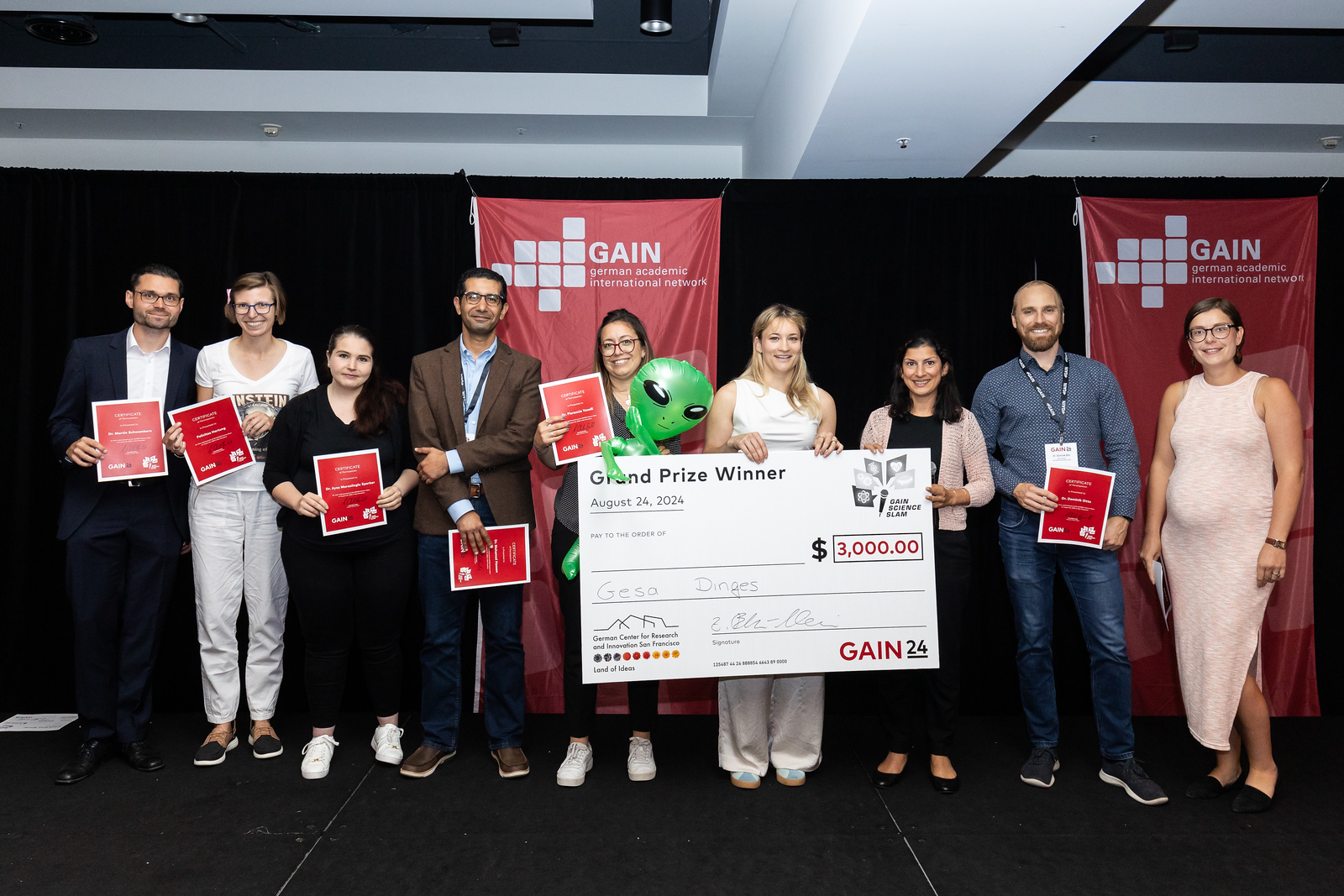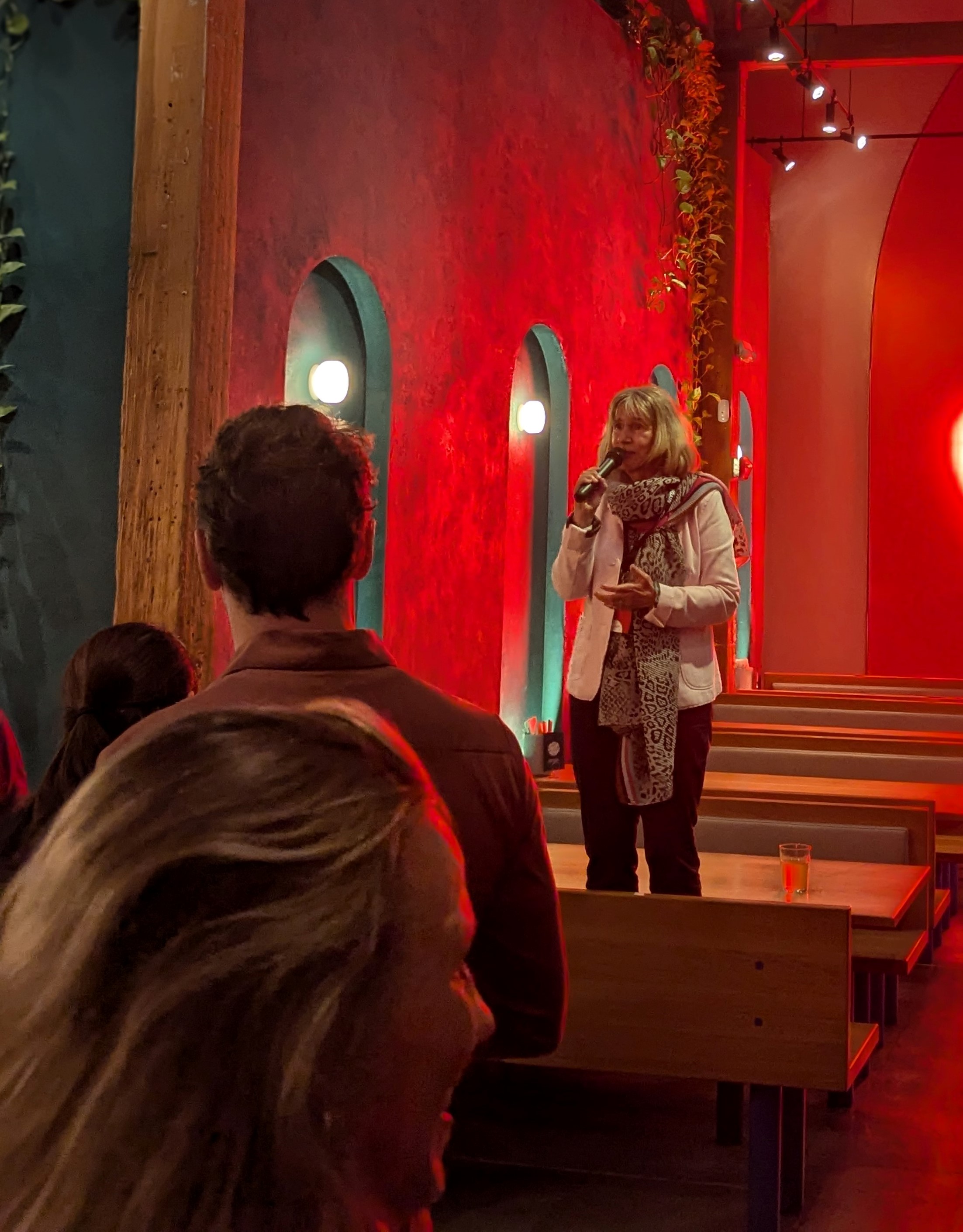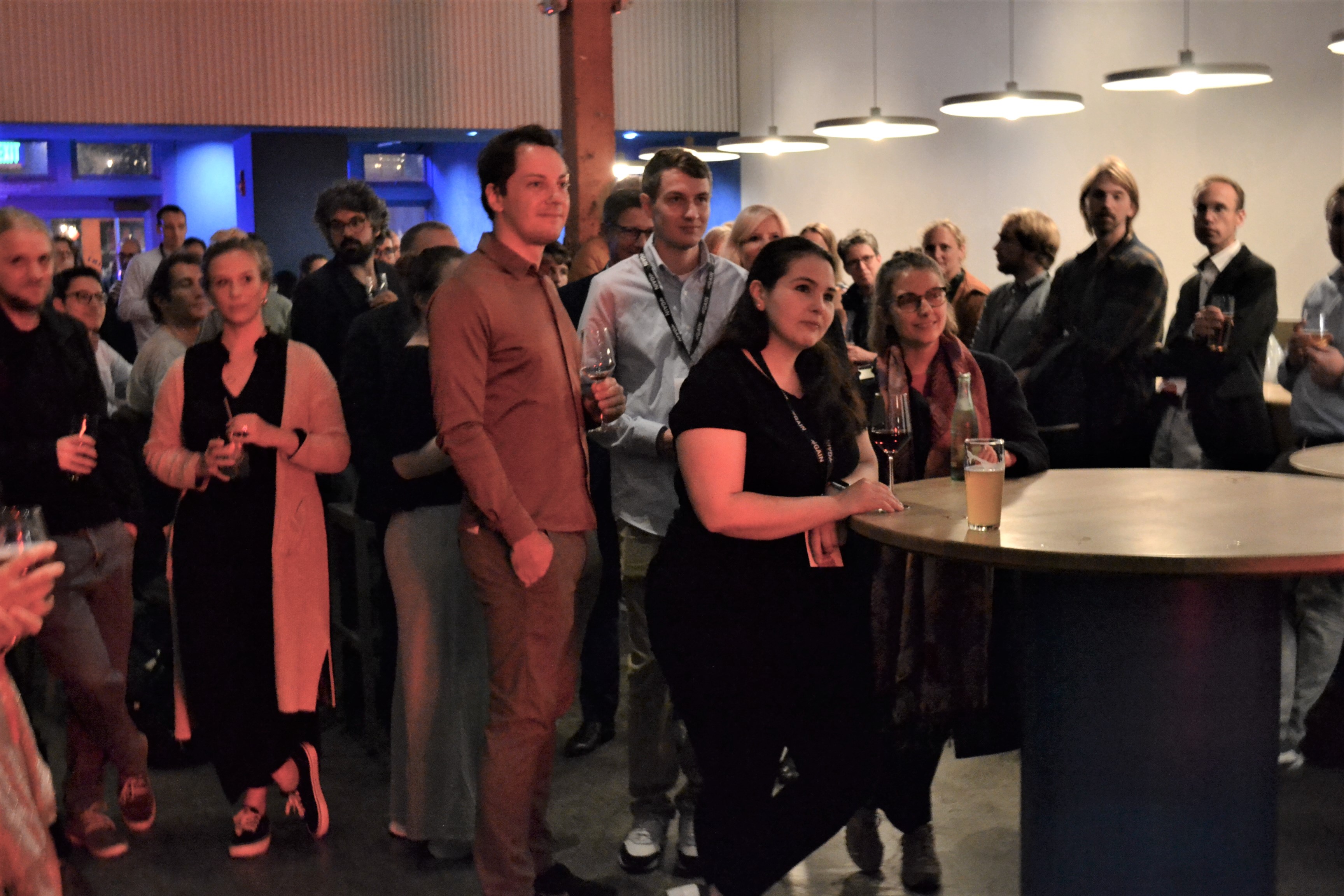Connections, Dialogue, and New Encounters
August │ 24th Annual GAIN Conference
Around 500 participants, including 270 postdocs, took the opportunity to gather information and exchange ideas August 23-25 in San Francisco at the largest networking event for international academic careers in Germany.
GAIN once again drew many interested participants, who used the international three-day forum for intensive discussions, advice and informal talks.
© GAIN/Barak Shrama
At the invitation of the German Academic International Network (GAIN), early-career academics from Germany working on the American continent and international postdocs were able to find out about a wide range of topics relating to Germany as a scientific research location at the 24th annual GAIN conference. Whether a career path to a professorship, going into science management, switching to the research-based economy or founding a start-up, career paths and return options were highlighted in a variety of ways. GAIN24 took place on the west coast of the USA for the first time since 2019.
GAIN Program Director Anna Oberle-Brill, Federal Research Minister Bettina Stark-Watzinger, DAAD President Dr. Joybrato Mukherjee and Dr. Thomas Hesse, interim Secretary General of the Alexander von Humboldt Foundation (AvH) were on hand to help Dr. Heide Ahrens, Secretary General of the German Research Foundation (DFG), welcome the participants. “Making connections, new encounters and dialogue are at the heart of GAIN,” said Ahrens. The aim is to explore together how research excellence can best flourish and also to open up and share one's own enthusiasm for scientific research. Ahrens highlighted the current discussion surrounding open science.
A core concern of Open Science is to open up science itself and make the entire research cycle accessible, said Ahrens. Despite all the benefits, this also entails significant risks, the Secretary General emphasized: “First, the commercialization and capitalization of freely available research results by large global corporations can have detrimental effects.” Secondly, in view of the current geopolitical situation, openness in science would result in considerable risks for research security – and not only in the area of international cooperation. “The question arises as to what risks are created not only for science, but also for society, the economy, and the state from unrestricted access to research results, data, and methods,” said Ahrens.
These risks can be countered efficiently with suitable measures in line with the guiding principle “as open as possible, as closed as necessary”. Ahrens sees a promising approach in graduated systems of access options. For example, it is possible to make data findable and accessible without directly disclosing the underlying data itself. There also needs to be a broader awareness of the need for clear legal provisions on how research results may be used by third parties.
In addition to discussing key current issues in science and its general framework, networking and advising are integral parts of GAIN. At the Talent Fair, for example, some 60 institutions presented career opportunities to postdocs and advertised open positions. In keeping with tradition, the DFG also hosted a reception for around 50 postdocs who are currently in the USA on a DFG fellowship. The program was rounded off with entertaining science research communication -- scientists presented current research results in a Science Slam.
Further network meetings
The next GAIN network meeting will take place from August 29 to 31, 2025 in Boston, MA, USA. In the meantime, however, GAIN is offering a digital worksho(externer Link) day on September 19, 2024 for interested postdocs who were unable to attend GAIN24.
